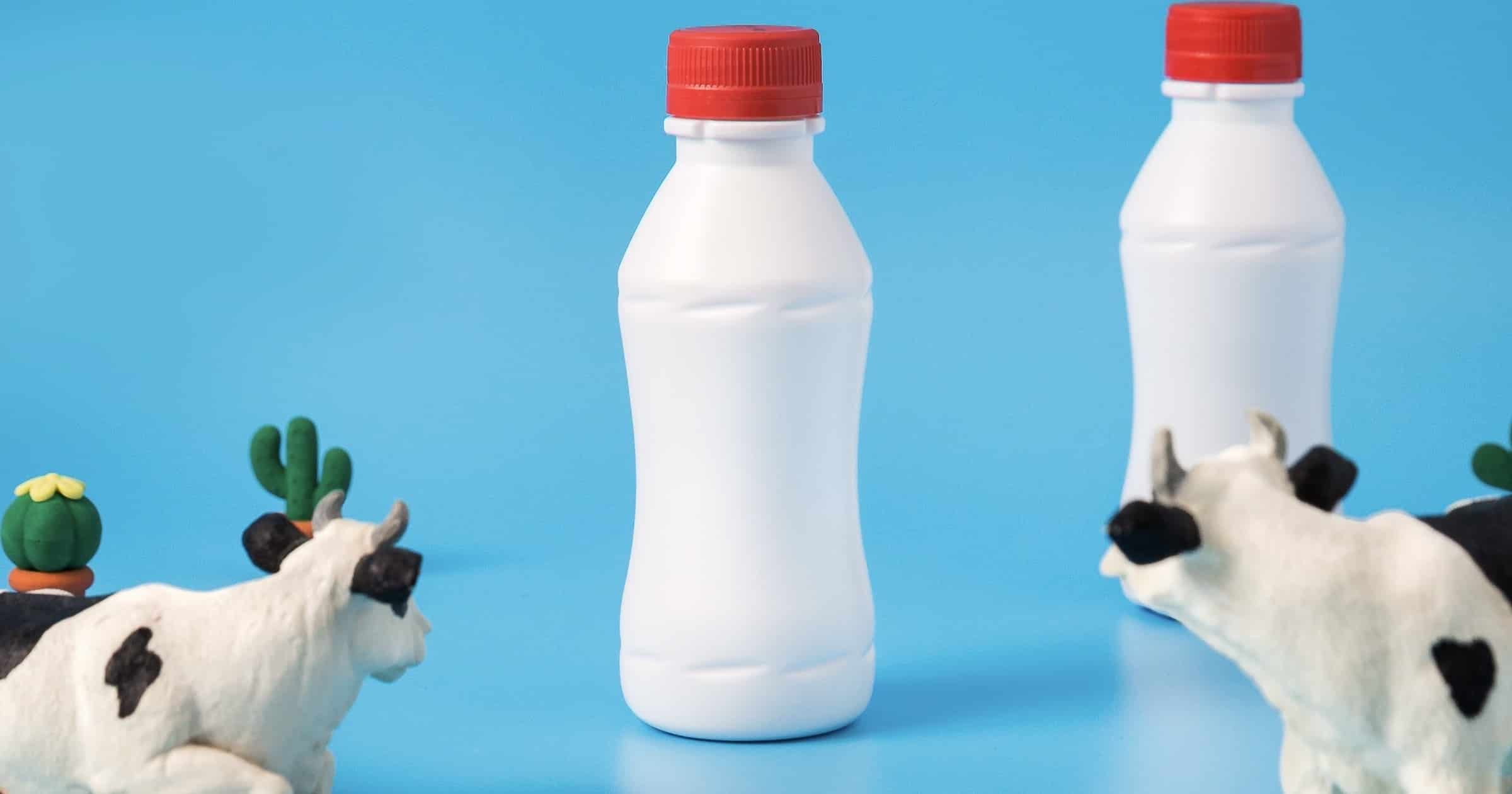 Evolution
Evolution
Much Ado About Lactase Persistence

Nothing shows the feebleness of Darwinism quite so much as breathless stories about brand new results. This week the topic was “lactase persistence” — the ability of some humans to continue to metabolize the milk sugar lactose past weaning and into adulthood. A bunch of news stories1,2,3,4 reported on a research article5 that claimed to demonstrate the old way of thinking about the topic was probably wrong.
The old hypothesis was pretty straightforward. Like the young of other mammalian species, human babies produce an enzyme (lactase) that breaks down the sugar (lactose) in mother’s milk, which is the first step in the metabolism of lactose. The gene for lactase is normally switched off after weaning, so adults can’t drink milk without suffering unpleasant gastrointestinal symptoms (no need to be explicit about that here). About ten thousand years ago, some human societies began to herd cattle. Thus, the old thinking went, any person then with a mutation that allowed them to drink cow (or sheep or goat) milk as an adult without getting sick would have a new source of nutrition that wasn’t available to nonmutants. So random mutation and natural selection kicked in and a few hundred generations later most folks in Europe do indeed have a mutation that causes lactase to be produced into adulthood. Who could ask for a more compelling example of the power of the Darwinian mechanism?
Well, I Could
The gene for lactase is about fifty-thousand nucleotides long, is composed of 17 exons, and has a one-thousand nucleotide promoter region preceding it. On the other hand, mutations that cause LP are single-nucleotide changes (any of several distinct ones will work) — just one (count ‘em, one) unit out of more than fifty thousand. What’s more, the change results in what in Darwin Devolves I termed a “loss-of-functional-coded-element” (loss-of-FCT). The mutation apparently (the situation is still not nailed down) destroys a pre-existing binding site near the gene for a regulatory protein that once switched off the gene at the appropriate developmental age. That’s not evolution — it’s devolution. An analogy might be to a small screw falling out of your car that renders the emergency brake inoperable. That might actually help in some odd driving circumstance but it is not the kind of process that would build an emergency brake — let alone a car — in the first place.
As simple and plausible as the lactase scenario sounds, the new paper says the old conventional wisdom doesn’t fit the facts. In reality, a lot of modern people who don’t make lactase as adults happily drink milk (or eat ice cream) anyway and shrug off the minor digestive consequences. Using data from ancient pottery samples and genetic analysis of ancient human remains, the authors showed there was also no correlation between milk consumption in antiquity and the presence of the lactase mutation in a region. They pooh-pooh the selective value of the mutation by itself and claim that it wouldn’t have spread so quickly if it gave such a slight advantage.
So what does explain the spread of the mutation? All the authors have to offer is speculation. They suggest that, although the mutation wouldn’t be of much help in ordinary times, in times of famine or plague a bit of intestinal distress can be fatal, perhaps jacking up the selective value. They gesture at some data they say supports the association of the mutation with times of famine and disease, but it’s hard to have any confidence in their more convoluted story when the simpler story was very persuasive, widely accepted, and wrong.
The Starkest Lesson
And that is the starkest lesson of the paper. One of my major points in Darwin Devolves was the impossibility (not just difficulty) of knowing that Darwinian evolution drove the unfolding of life. Much of the prestige of science derives from the power and elegance of the laws of physics, which are indeed wonderful predictors of the behavior of bodies — for a few steps. But try predicting with just Newton’s laws where a particular billiard ball will end up after a few bounces around a pool table that also holds a dozen other balls. Better yet, try predicting the weather in detail for Bethlehem, Pennsylvania, for 2:18 p.m. on the first Thursday in October — it can’t be done, even though all the particles involved obey the known laws of physics. Those same laws of physics that accurately calculate the trajectory of a cannon ball are close to useless with complex systems.
And, as we see clearly with the example of lactase persistence, life is a complex system. So we get the spectacle of nearly a hundred brilliant scientists working for years, publishing their best results in one of our most prestigious journals — and they report their struggle to understand why one nucleotide change out of fifty thousand might have given some sort of advantage in some sort of circumstance or other. Contrast that poignant struggle with the smug pronouncements one routinely reads in textbooks and scientific society bulletins, that science most assuredly knows that all of life — from the genetic code to molecular machines to eukaryotic cells to worms to elephants to the human mind — is the result of a Darwinian process.
Talk about straining at a gnat and swallowing a camel.
References
- https://www.washingtonpost.com/health/2022/07/28/lactose-intolerant-europe-study-milk/
- https://www.theatlantic.com/science/archive/2022/07/dairy-lactose-intolerance-causes/670966/
- https://www.smithsonianmag.com/science-nature/famine-and-diseases-likely-drove-europeans-ability-to-digest-milk-180980483/
- https://phys.org/news/2022-07-famine-disease-drove-evolution-lactose.html
- https://www.nature.com/articles/d41586-022-02067-2
